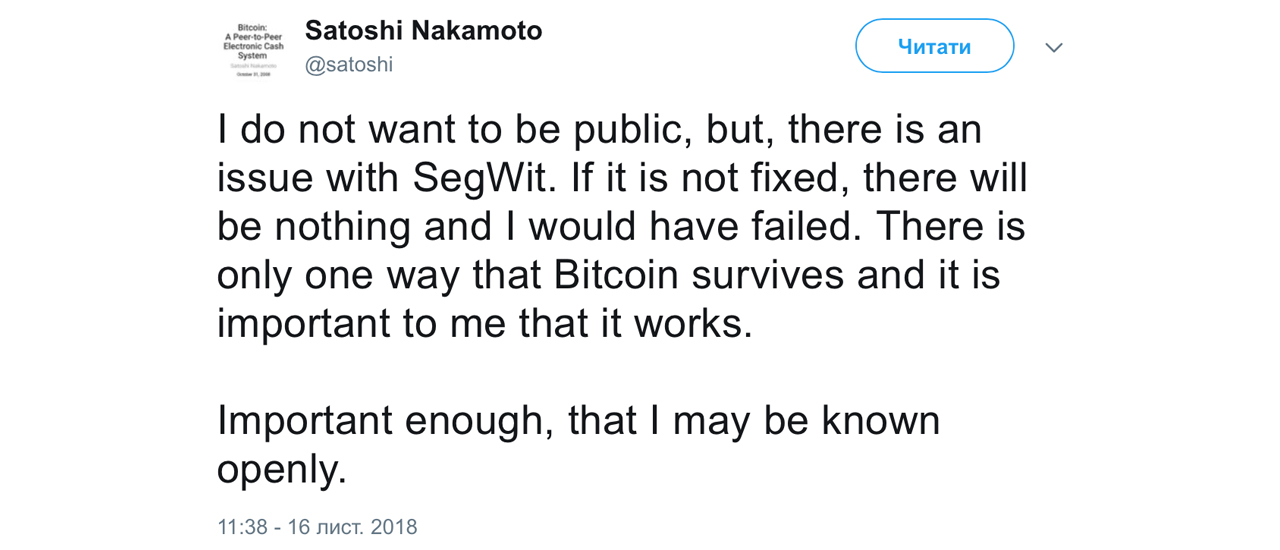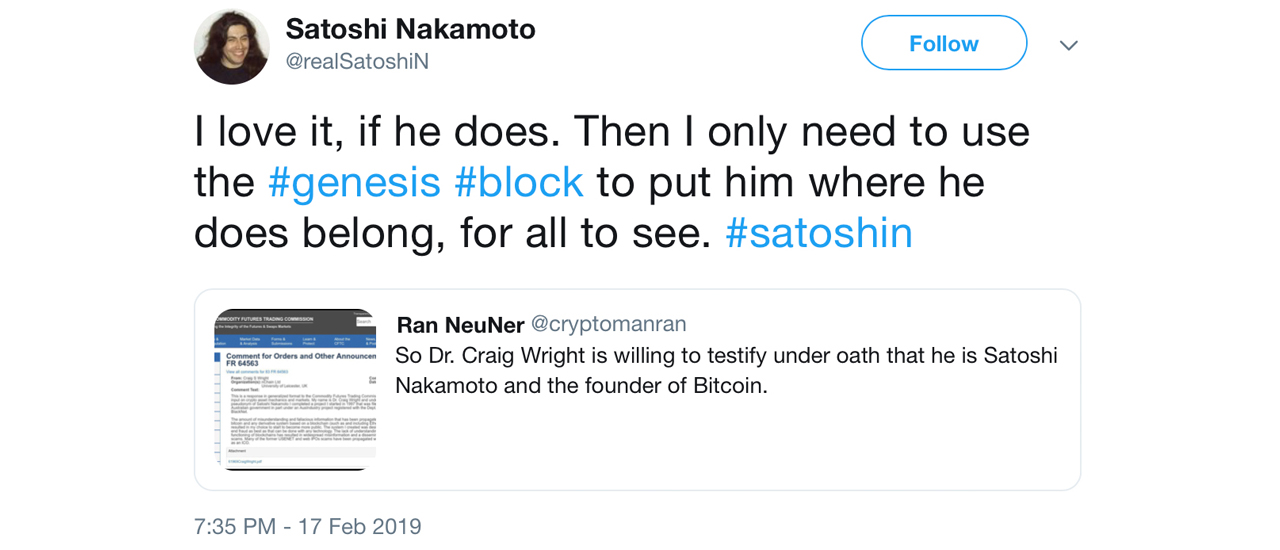
Satoshi Nakamoto, a captivating figure in the world of cryptocurrencies, remains an enigma, intriguing both crypto enthusiasts and experts. Numerous individuals have stepped forward over the years, proclaiming themselves as the elusive creator of Bitcoin. However, none of them have succeeded in providing substantial evidence or convincing the wider crypto community. Interestingly, it has been over four years since anyone has made such a claim, indicating that the era of self-proclaimed inventors of Bitcoin may have reached its conclusion.
The Fading Mirage — Self-Proclaimed Satoshis Disappear from Crypto Scene
Who is Satoshi Nakamoto? The true identity of Satoshi Nakamoto remains unknown, as the name is believed to be a pseudonym. The only known connection to Satoshi Nakamoto is through an email correspondence and forum posts attributed to the name. However, a birthdate of April 5, 1975, was registered on the P2P Foundation forum, where Nakamoto announced the release of the Bitcoin white paper in 2008. Despite this information, the true identity of Satoshi Nakamoto continues to elude the public.
In 2018 and 2019, a series of individuals emerged, asserting their identity as Satoshi Nakamoto, only to fail in providing the necessary proof or swaying the beliefs of bitcoiners. As an illustration, approximately five years ago, Matthew Leising penned an article for Bloomberg, unveiling the plans of Bitcoin’s self-proclaimed creator to publish a tell-all book.
However, this person, known as ‘Duality,’ never released the anticipated book. Instead, they left behind a website, a puzzling “Cryptopuzzle” and a manuscript titled “Duality: An excerpt.” Despite the initial intrigue, this incident ultimately fizzled out, fading from people’s memories as if it never occurred.
It is intriguing to note that in that very same month of 2018, yet another self-proclaimed Satoshi Nakamoto sort-of made an appearance. It was discovered that a resident of Hawaii had filed trademark requests for the name Bitcoin Cash, while also engaging in website squatting, seizing control of various domains associated with the name Satoshi and the BCH ticker.

The person behind these actions was allegedly Ronald Keala Kua Maria, a Hawaiian individual who boldly declared themselves to be Satoshi Nakamoto. However, similar to the previous case of Duality, this person with trademarks and websites chose not to step into the limelight, allowing their initial claim to fade away, and ultimately, the tale was forgotten.

In November 2018, a message allegedly signed from block 9 emerged, accompanied by a now-deleted Twitter handle. However, this narrative swiftly faded away as software and blockchain developers Gregory Maxwell and Christopher Jeffrey promptly debunked its authenticity. Simultaneously, within the same month, the Satoshi Nakamoto account registered on the P2P Foundation forum left the community intrigued by posting a single word.
A month earlier, the crypto world became acquainted with Phil Wilson, also known as “scronty,” who claimed to be part of the Bitcoin creation group. Despite Wilson spinning an elaborate tale, he himself admitted the lack of verifiable evidence throughout. Ultimately, Wilson’s account became just another instance of an individual making claims without substantial proof, gradually receding into the land of forgotten Satoshi stories.
2019’s Trio of Self-Proclaimed Satoshis
In 2019, the Satoshi Nakamoto saga continued with the emergence of three more claimants. The first one to step into the spotlight was Jörg Molt, also known as the infamous “hair guy.” Despite Molt’s appearance, the wider crypto community dismissed him as a mere joke. However, while many considered him a phony, the individual who also operated under the alias ‘DJ Sun Love’ found himself facing arrest for his alleged involvement in a crypto pension fund scam that reportedly defrauded around 50 people.
Mr. Jorg Molt, Co-Founder, BITCOIN, delivering a talk to SIMS student managers on BITCOIN and its applications. # @PuneSIMS # SIMSARC # BITCOIN pic.twitter.com/BfONsKZjCl
— SIMS, Pune (@PuneSIMS) December 17, 2018
Then, in mid-August 2019, a Pakistani individual named Bilal Khalid, accompanied by his PR firm Ivy McLemore, made a grand announcement, proclaiming Khalid as the mastermind behind Bitcoin. Khalid penned a series of elaborate essays on the subject, but his claims were met with skepticism and not taken seriously. To add to the intrigue, Khalid stated that he had lost his ostensible stash of 980,000 BTC when he sent his laptop in for repair, adding another layer of doubt to his story.
Lastly, in 2019, a Belgian individual by the name of Debo Jurgen Etienne Guido made multiple claims of being Satoshi Nakamoto. Debo had been active in the crypto scene since 2015, maintaining a Twitter account where he regularly asserted his identity as Bitcoin’s creator. Presently, the Twitter account under the handle “@realSatoshiN” still exists, although its tweets are now set to private.

However, Debo’s claims faced widespread skepticism, and he never managed to provide the necessary proof to convince the larger cryptocurrency community of his story. Since the occurrences involving Molt, Khalid, and Debo, no other individual has stepped forward to claim the Satoshi mantle since 2019.
While it’s been over four years since these individuals emerged, people recognize that the genuine brilliance of Satoshi Nakamoto lies not in their identity but in the ideas they spawned and the revolution they set in motion. Bitcoin, the brainchild of an anonymous visionary, has established a counter-economy and censorship-resistant money, which has fundamentally challenged conventional finance. For the majority of Bitcoin proponents and cryptocurrency enthusiasts today, Satoshi’s identity holds no significance, and the accounts of those purporting to be Satoshi are mere fabrications.
What do you think about the fact that it’s been over four years since any self-proclaimed Satoshis have appeared? Share your thoughts and opinions about this subject in the comments section below.
from Bitcoin News https://ift.tt/L7wrxZ5
Comments
Post a Comment